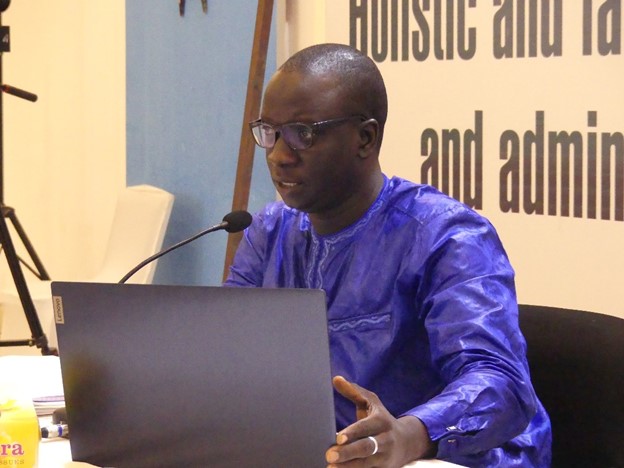Modou Jonga, the former CEO of Brikama Area Council, testified yesterday at the ongoing Local Government Commission of Inquiry. He revealed that the council spent D2.5 million in 2019 and D2 million in 2020 on various ward development projects.
Jonga shared details on how the council had been ignoring procurement rules before he became CEO. He said, “The Council supported communities by building feeder roads, installing solar lights, setting up water boreholes, and increasing student scholarships. We also worked on road repairs, women’s garden projects, borehole repairs, fencing a football field, building toilets, and constructing markets. We disbursed D2.5 million in 2019 and D2 million in 2020 to the wards for their development.”
He explained that most of the spending matched the budget and that he regularly checked his actions against the Financial Manual, the Local Government Act, and the Local Government Finance and Audit Act.
When asked why there was no internal audit report for 2021, Jonga said it was the Internal Audit Unit’s fault and added that he did not prevent them from doing their work.
Jonga was then shown the Financial Manual, which outlines his responsibility to ensure all units perform their tasks properly. After reviewing it, he admitted he did not ask the Internal Audit Unit to carry out an audit to check the Council’s status.
He also mentioned that the Council was expected to meet at least once a month, but sometimes failed to do so due to a lack of agenda. Lead Counsel Patrick Gomez argued that this excuse was not valid, as there were many important issues to address for the welfare of the people.
Regarding procurement rules, Jonga admitted there were times when the council did not follow them. He noted that when he arrived, compliance was low, but he worked to improve it.
“The audit reports used to be ‘adverse,’ but I managed to improve the system to ‘qualified,’ introduced a procurement plan, created a fixed asset register, and made procurement more participatory,” he said.
He told the commission that in 2020, the council didn’t have an approved plan and used a draft plan for procurement instead. Although they prepared and submitted a plan for approval, they never received it.
“Having a plan that’s not approved is better than having no plan at all,” he said.
Lead Counsel Gomez referred him to the Gambia Public Procurement Authority (GPPA) Act, which states that procurement must strictly follow the Act, its regulations, and other laws set by the National Assembly.
After reading from the GPPA Act, Jonga agreed that it is crucial to follow the law for procurement and confirmed that having a procurement plan is mandatory. He acknowledged that making expenditures without a procurement plan was wrong.




